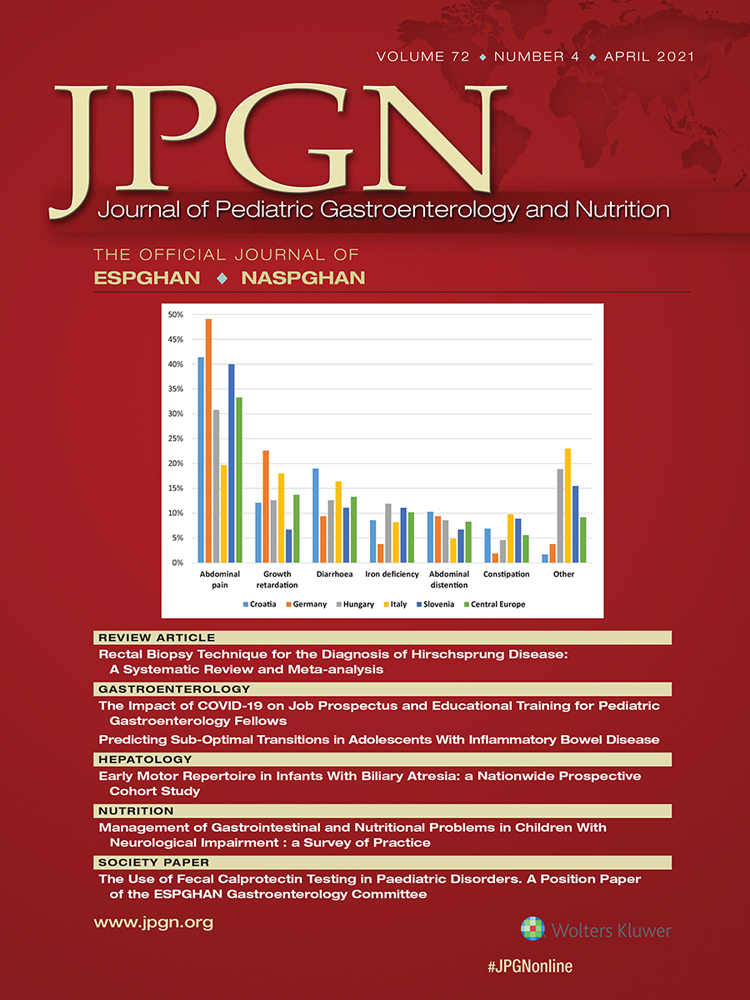Diagnostic Accuracy of the Rome IV Criteria for the Diagnosis of Functional Gastrointestinal Disorders in Children
Supplemental digital content is available for this article. Direct URL citations appear in the printed text, and links to the digital files are provided in the HTML text of this article on the journal's Web site (www.jpgn.org).
The authors report no conflicts of interest.
ABSTRACT
The diagnosis of functional gastrointestinal disorders (FGIDs) centers on symptoms-based criteria (Rome criteria). The last edition of the criteria was published in 2016. Still, few data on its validity support its use in children. We conducted a study aimed at determining the diagnostic accuracy of the Rome IV criteria through the application of questionnaires (Questionnaire of Pediatric Gastrointestinal Symptoms-Rome IV QPGS-IV) to diagnose FGIDs in children. We hypothesized that the Rome IV criteria has adequate diagnostic accuracy supporting its use for diagnosing FGIDs in children.
Methods:
School children ages 10 to 18 years from Cali (Colombia) completed the Spanish version of the QPGS-IV. Children with FGIDs were matched with a group of children without FGIDs. Both groups had a medical consultation with a blinded experienced pediatric gastroenterologist (criterion standard) who provided his diagnosis. The questionnaire-based diagnoses were compared with the consultation's diagnoses.
Results:
Of 487 schoolchildren surveyed with the QPGS-IV, 97 (20.8%) had FGIDs. Eighty-nine with FGIDs were matched with 92 children without FGIDs (mean age 13.1 years [±1.3]). We found a higher prevalence of FGIDs during the medical visit than using the self-report QPGS-IV (66.3% vs 49.2%, P = 0.001), mainly in abdominal pain disorders (19.3% vs 10.5%, P = 0.013). The Rome IV diagnostic criteria using the QPGS-IV had a sensitivity of 75% (95% confidence interval, 59–79) and 90% specificity (95% confidence interval, 83–98). Positive predictive value is 85.8%, and negative predictive value is 79.9%.
Conclusion:
Our study suggests that the QPGS-IV has adequate diagnostic accuracy.




